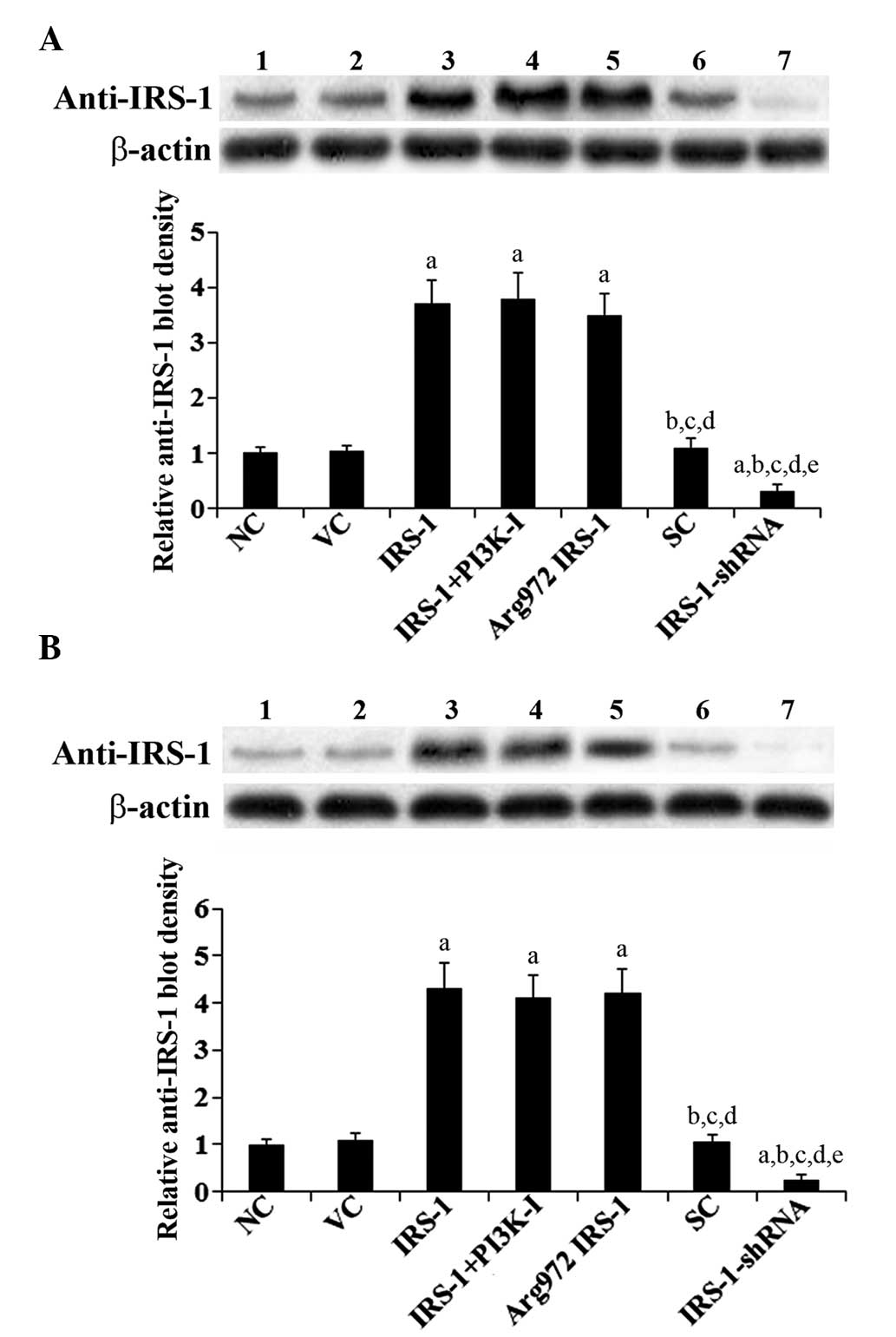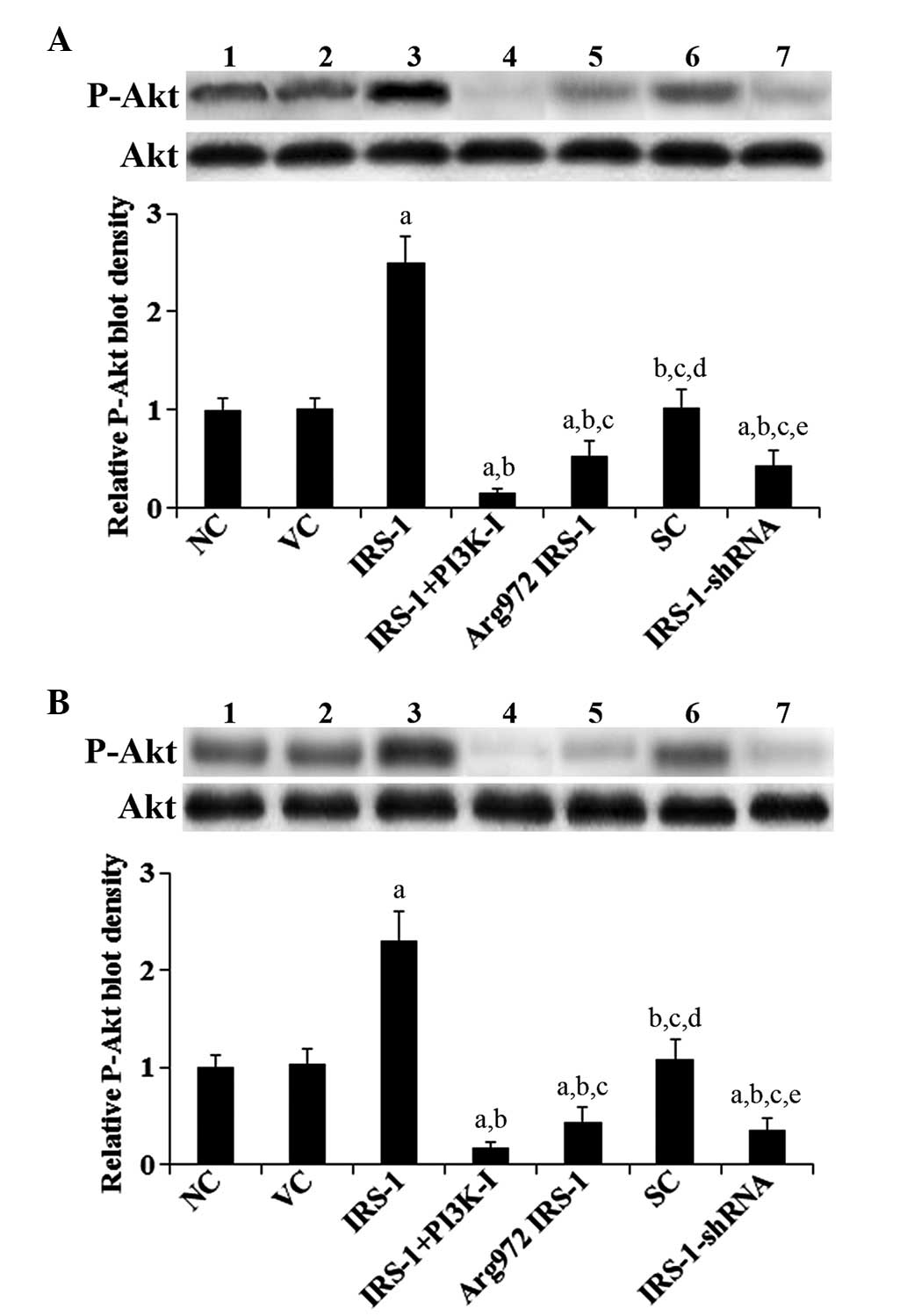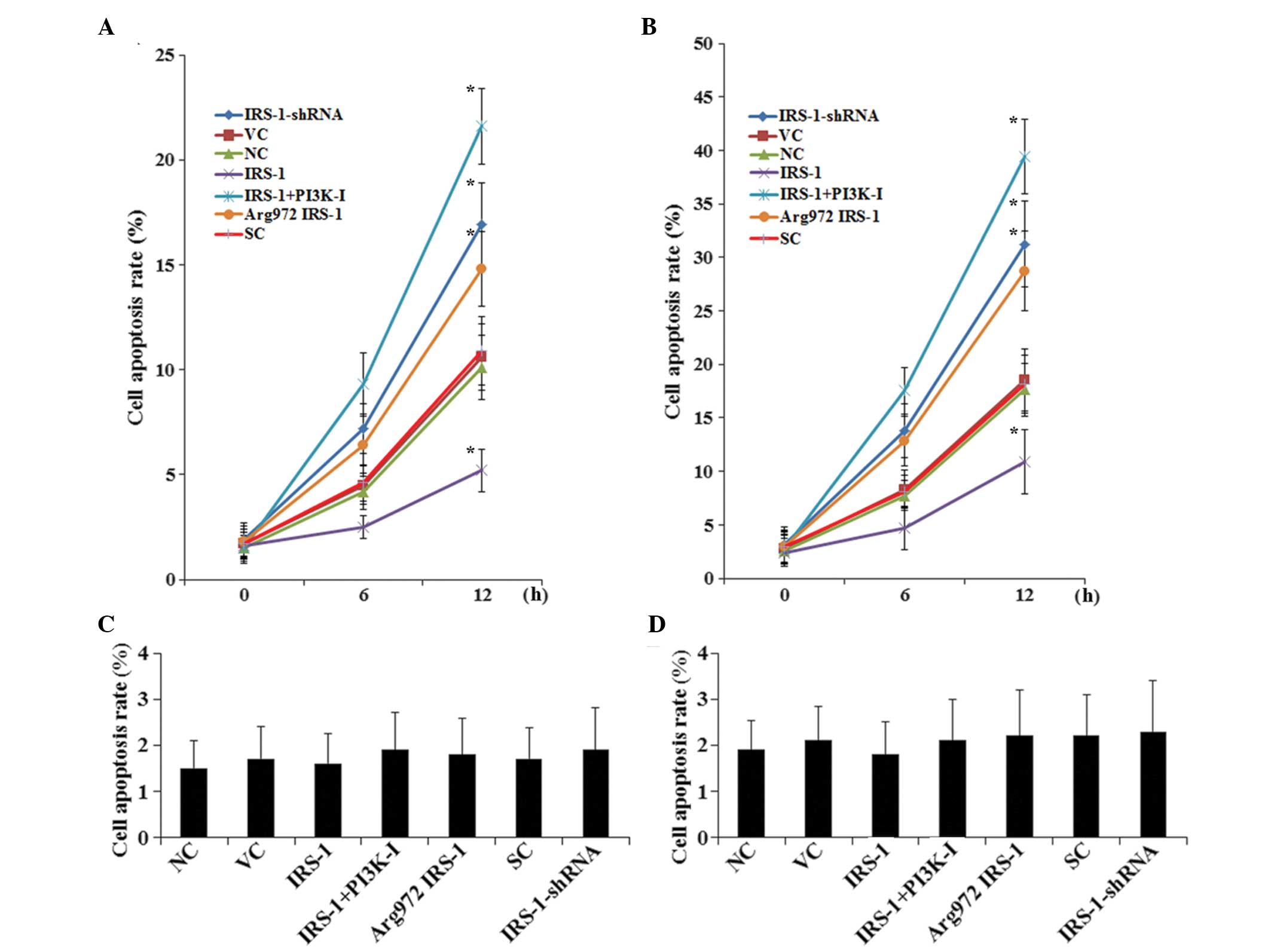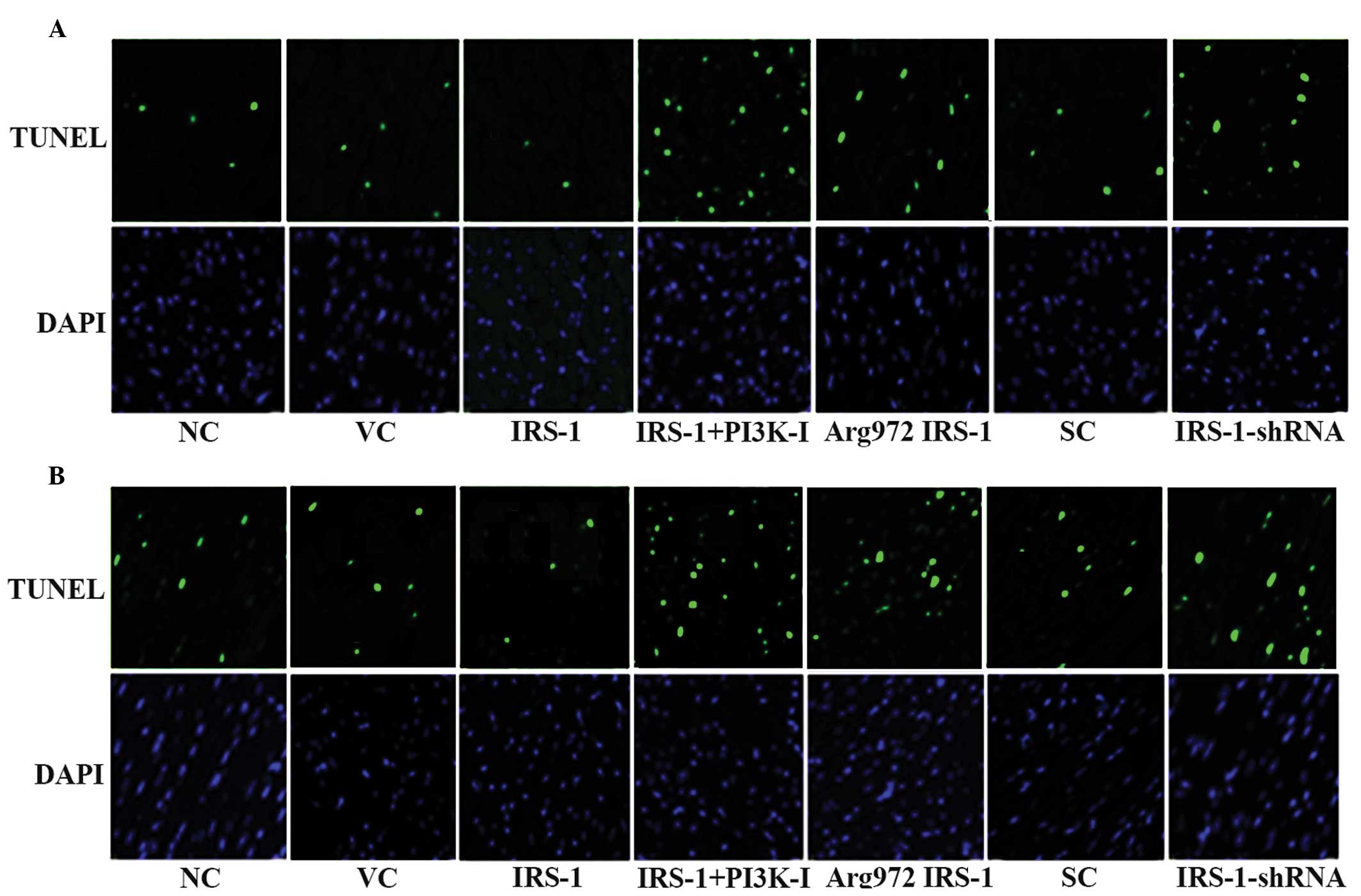|
1
|
Zeng G, Nystrom FH, Ravichandran LV, Cong
LN, Kirby M, Mostowski H and Quon MJ: Roles for insulin receptor,
PI3-kinase, and Akt in insulin signaling pathways related to
production of nitric oxide in human vascular endothelial cells.
Circulation. 101:1539–1545. 2000. View Article : Google Scholar : PubMed/NCBI
|
|
2
|
Kuboki K, Jiang ZY, Takahara N, et al:
Regulation of endothelial constitutive nitric oxide synthase gene
expression in endo-thelial cells and in vivo: a specific vascular
action of insulin. Circulation. 101:676–681. 2000. View Article : Google Scholar : PubMed/NCBI
|
|
3
|
Fallucca F, Dalfrà MG, Sciullo E, et al:
Polymorphisms of insulin receptor substrate 1 and beta3-adrenergic
receptor genes in gestational diabetes and normal pregnancy.
Metabolism. 55:1451–1456. 2006. View Article : Google Scholar : PubMed/NCBI
|
|
4
|
Huang C, Lin Z, Zhou Y, et al:
Arg(972) insulin receptor substrate-1 is associated with
elevated plasma endothelin-1 level in hypertensives. J Hypertens.
30:1751–1757. 2012. View Article : Google Scholar : PubMed/NCBI
|
|
5
|
Zhao H, Liu S, Long M, Peng L, Deng H and
You Y: Arg972 Insulin receptor substrate-1 polymorphism
and risk and severity of rheumatoid arthritis. J Int Rheum Dis. In
press.
|
|
6
|
Nanke Y, Kotake S, Akama H and Kamatani N:
Alkaline phosphatase in rheumatoid arthritis patients: possible
contribution of bone-type ALP to the raised activities of ALP in
rheumatoid arthritis patients. Clin Rheumatol. 21:198–202. 2002.
View Article : Google Scholar : PubMed/NCBI
|
|
7
|
Neve A, Corrado A and Cantatore FP:
Osteoblast physiology in normal and pathological conditions. Cell
Tissue Res. 343:289–302. 2011. View Article : Google Scholar
|
|
8
|
Fütterer A, Mink K, Luz A, Kosco-Vilbois
MH and Pfeffer K: The lymphotoxin beta receptor controls
organogenesis and affinity maturation in peripheral lymphoid
tissues. Immunity. 9:59–70. 1998. View Article : Google Scholar : PubMed/NCBI
|
|
9
|
McInnes IB and Liew FY: Cytokine networks:
Towards new therapies for rheumatoid arthritis. Nat Clin Prac
Rheumatol. 1:31–39. 2005. View Article : Google Scholar
|
|
10
|
Kitajima I, Soejima Y, Takasaki I, Beppu
H, Tokioka T and Maruyama I: Ceramide-induced nuclear translocation
of NFkappa B is a potential mediator of the apoptotic response to
TNF-alpha in murine clonal osteoblasts. Bone. 19:263–270. 1996.
View Article : Google Scholar : PubMed/NCBI
|
|
11
|
Hill PA, Tumber A and Meikle MC: Multiple
extracellular signals promote osteoblast survival and apoptosis.
Endocrinology. 138:3849–3858. 1997.PubMed/NCBI
|
|
12
|
Jilka RL, Weinstein RS, Bellido T, Parfitt
AM and Manolagas SC: Osteoblast programmed cell death (apoptosis):
Modulation by growth factors and cytokines. J Bone Miner Res.
13:793–802. 1998. View Article : Google Scholar : PubMed/NCBI
|
|
13
|
Hock JM, Krishnan V, Onyia JE, Bidwell JP,
Milas J and Stanislaus D: Osteoblast apoptosis and bone turnover. J
Bone Miner Res. 16:975–984. 2001. View Article : Google Scholar : PubMed/NCBI
|
|
14
|
Chen L, Monti S, Juszczynski P, et al: SYK
inhibition modulates distinct PI3K/AKT- dependent survival pathways
and cholesterol biosynthesis in diffuse large B cell lymphomas.
Cancer Cell. 23:826–838. 2013. View Article : Google Scholar : PubMed/NCBI
|
|
15
|
Porzio O, Federici M, Hribal ML, et al:
The Gly972-->Arg amino acid polymorphism in IRS-1
impairs insulin secretion in pancreatic beta cells. J Clin Invest.
104:357–364. 1999. View
Article : Google Scholar : PubMed/NCBI
|
|
16
|
Nagoshi T, Matsui T, Aoyama T, et al: PI3K
rescues the detrimental effects of chronic Akt activation in the
heart during ischemia/reperfusion injury. J Clin Invest.
115:2128–2138. 2005. View
Article : Google Scholar : PubMed/NCBI
|
|
17
|
Matsui T, Li L, del Monte F, Fukui Y,
Franke TF, Hajjar RJ and Rosenzweig A: Adenoviral gene transfer of
activated PI 3-kinase and Akt inhibits apoptosis of hypoxic
cardiomyocytes in vitro. Circulation. 100:2373–2379. 1999.
View Article : Google Scholar : PubMed/NCBI
|
|
18
|
Yang J, Zhang X, Wang W and Liu J: Insulin
stimulates osteoblast proliferation and differentiation through ERK
and PI3K in MG-63 cells. Cell Biochem Funct. 28:334–341. 2010.
View Article : Google Scholar
|
|
19
|
Byun CH, Koh JM, Kim DK, Park SI, Lee KU
and Kim GS: α-lipoic acid inhibits TNF-α-induced apoptosis in human
bone marrow stromal cells. J Bone Miner Res. 20:1125–1135. 2005.
View Article : Google Scholar : PubMed/NCBI
|
|
20
|
Ma X and Xu S: TNF inhibitor therapy for
rheumatoid arthritis (Review). Biomed Rep. 1:177–184. 2013.
|



















